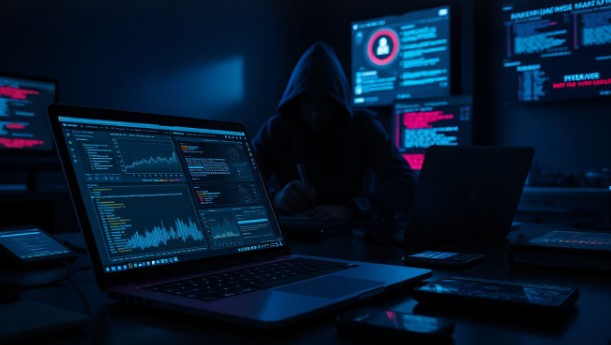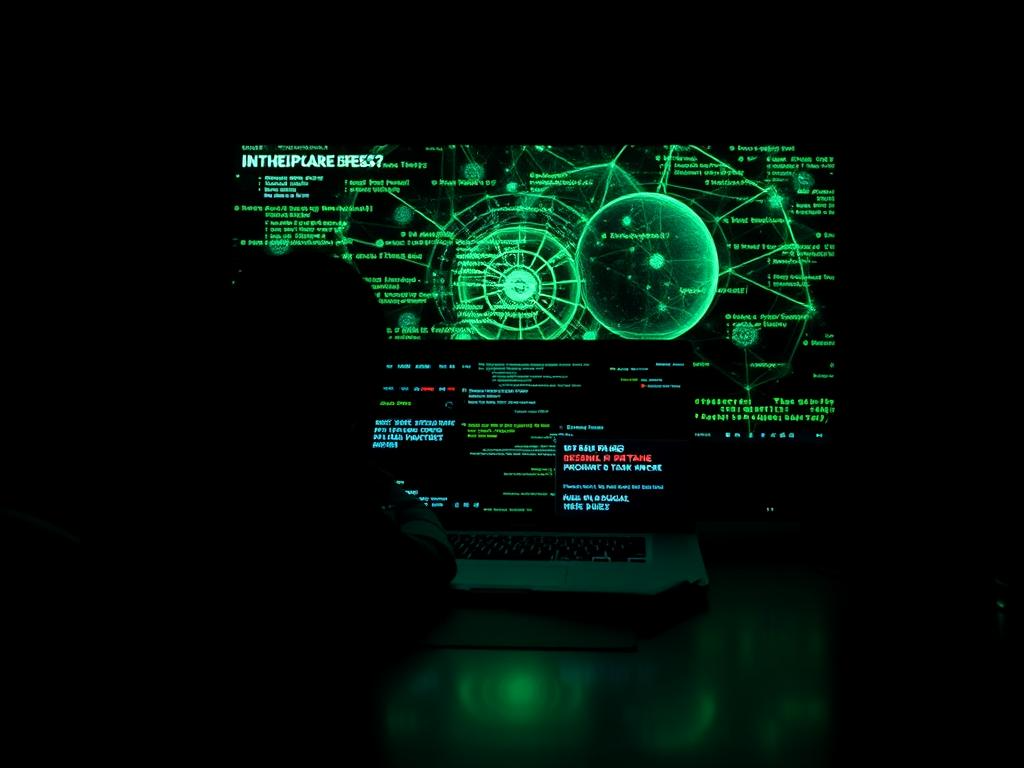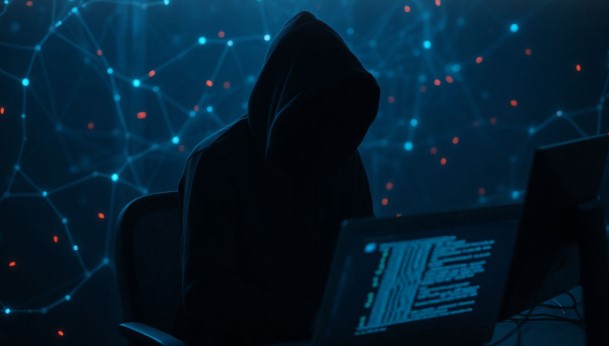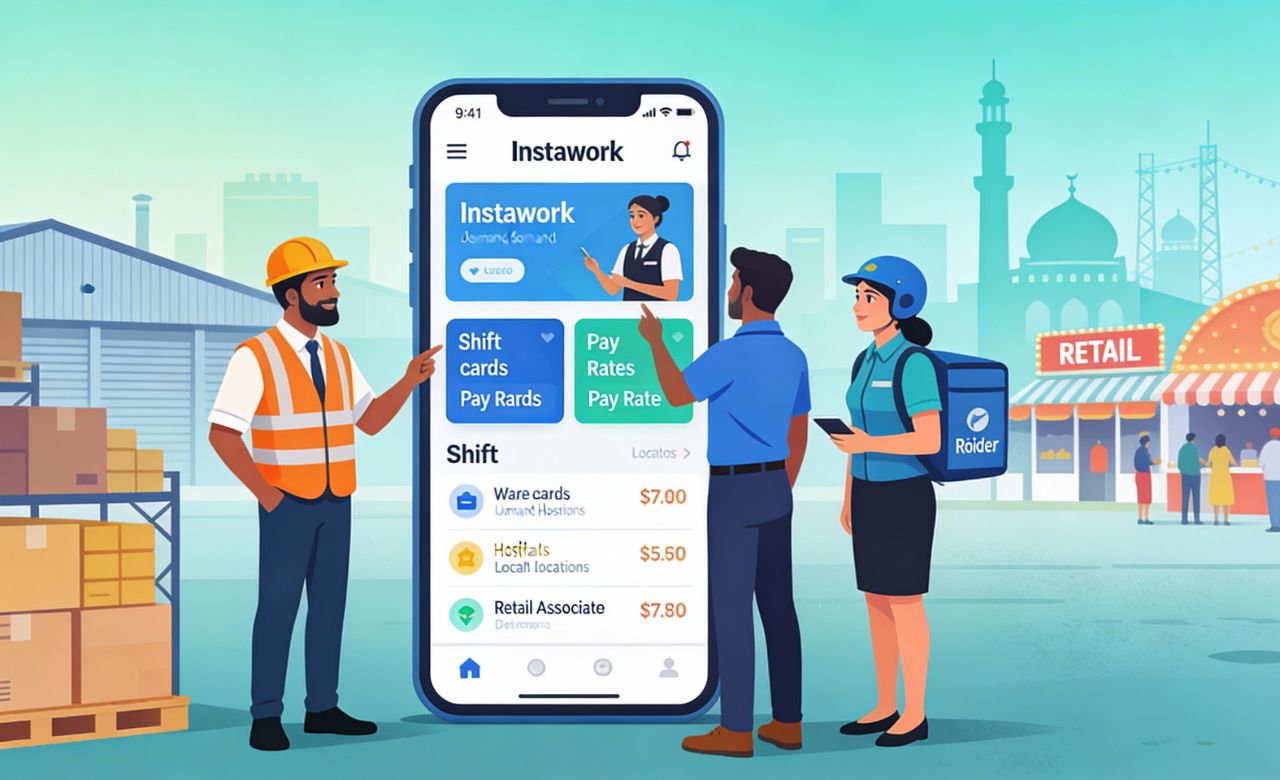Introduction
The dark web has a mysterious reputation. Some see it as a place for privacy and free speech, while others worry about illegal activities. It’s an invisible part of the internet that many people don’t fully understand. As concerns about online privacy grow, knowing what the dark web is becomes more important.
The Dark web is often associated with illegal activities, but it is commonly misunderstood by the general public. But the truth is, the Dark Web is just one part of a much larger digital landscape. In this blog post, we will dive into what the Dark Web is, how it differs from the Deep Web, its legitimate uses, risks, and how you can safely navigate it if needed.
The dark web is also confused with other parts of the internet. To get a clear picture, let’s clarify the difference between the surface web, the deep web, and the dark web.
What is the Dark Web? An In-Depth Explanation
Definition of the Dark Web
The dark web is a part of the internet you can’t access with regular browsers like Chrome or Firefox. You need special software, like Tor or I2P, to reach it. Unlike websites you see every day, such as Google or Facebook, the dark web hosts sites that are hidden. It is a small section of the deep web, which includes all private data, bank accounts, emails, and more, none of which is indexed by search engines.
How the Dark Web Works
To stay anonymous, users on the dark web rely on networks like Tor (The Onion Router) and I2P (Invisible Internet Project). These tools encrypt your traffic and route it through multiple servers. This process makes it almost impossible to trace your location or see what you’re doing. The dark web operates on pseudonymous identities, meaning users can use fake names without revealing who they really are.

The Difference Between the Dark Web, Deep Web, and Surface Web
To truly understand the Dark Web, it’s essential to know how it differs from the other parts of the internet.
- Surface Web: This is the visible part of the internet that we use daily, like websites you can find through search engines. These sites are indexed by search engines, and anyone can access them.
- Deep Web: This part of the internet includes pages and information that are not indexed by traditional search engines. This can include databases, email inboxes, subscription-based services, academic repositories, and anything protected by a password or hidden behind a paywall.
- Dark Web: A subset of the Deep Web, the Dark Web is intentionally hidden and can only be accessed using special software like Tor. It is known for being a hotspot for both illegal and legal activities.
How the Dark Web Works
The Dark Web functions on a different infrastructure compared to the Surface Web. To access it, users need special tools like Tor or I2P (Invisible Internet Project).
Tor Network
The Tor Network is the most popular way to access the Dark Web. When you use Tor, your internet traffic is bounced through multiple nodes (servers), making it difficult for anyone to track your activity. This is why it is called the “onion router”—it uses layers of encryption that are peeled away as the data moves through various relays.
Websites on the Dark Web often have URLs that end with “.onion” instead of the regular “.com” or “.org” domain. For example, a Dark Web site might look like “3g2upl4pq6kufc4m.onion.”
I2P
The I2P network is another platform used to access the Dark Web, and it focuses on anonymous peer-to-peer communication. While Tor is used for browsing websites, I2P is often used for sending messages or sharing files without revealing the user’s location or identity.
Also Read: Samsung AI Smart Mirrors: The Future of Reflective Technology
Is the Dark Web Illegal?
The Dark Web itself is not illegal. It’s merely a part of the internet that is hidden and uses encryption to protect users’ privacy. There are legal and illegal activities happening on the Dark Web, just as there are in the physical world.
Legal Uses of the Dark Web
- Privacy: The Dark Web is used by individuals who want to maintain privacy, including journalists, political activists, and those living in oppressive regimes where free speech is restricted.
- Whistleblowing: Platforms like SecureDrop allow whistleblowers to leak sensitive information safely and anonymously.
- Research: Academics and researchers use the Dark Web to study online behavior, trends, and digital security.
Illegal Activities on the Dark Web
Unfortunately, the anonymity provided by the Dark Web also allows for the existence of illegal activities, such as:
- Drug trafficking
- Weapon sales
- Stolen data and identity theft
- Hacking services
- Human trafficking
- Child exploitation
Authorities have been cracking down on these illicit activities, but the decentralized and anonymous nature of the Dark Web makes it difficult to regulate.
Common Uses of the Dark Web
Despite its controversial reputation, the Dark Web hosts various legitimate uses. Below are some of the most common uses:
1. Privacy Protection
Many individuals use the Dark Web to ensure their online activities remain private. This is especially important in countries where the government monitors internet usage.
2. Whistleblowing Platforms
Secure communication channels on the Dark Web provide a safe haven for whistleblowers who wish to expose corruption, human rights violations, or corporate wrongdoing without fear of retribution.
3. Safe Communication
Journalists working in hostile environments may rely on the Dark Web to communicate with sources securely, knowing that their messages are encrypted and protected from prying eyes.
4. Online Marketplaces
The Dark Web is home to marketplaces where users can buy and sell products ranging from books to digital goods and privacy-enhancing tools. However, many of these marketplaces deal in illegal products.
5. Censorship Resistance
In countries with strict internet censorship laws (e.g., China, Iran, and Russia), the Dark Web provides a means for citizens to access uncensored information.
Risks of Using the Dark Web
While there are some legitimate uses of the Dark Web, it is also a place where dangers lurk. Here are some of the main risks:
1. Illegal Activities
As previously mentioned, the Dark Web is infamous for hosting illegal transactions and activities. Engaging in any illegal activity on the Dark Web, knowingly or unknowingly, can lead to criminal prosecution.
2. Cybersecurity Threats
Because of the anonymity provided by the Dark Web, cybercriminals often use it to sell hacking tools, malware, and stolen data. If you’re not careful, you could accidentally download malware or become a target of fraud.
3. Scams and Fraud
Many Dark Web marketplaces and forums are riddled with scams. Fraudulent sellers may take your money and disappear, or worse, sell counterfeit goods or stolen products.
4. Legal Consequences
Although browsing the Dark Web isn’t illegal in most countries, it’s crucial to understand that certain activities—such as accessing illegal content or purchasing illicit goods—are unlawful and could result in legal action.
5. Privacy Concerns
While Tor offers anonymity, it is not foolproof. There have been instances where users’ identities have been uncovered, either through vulnerabilities in the software or user mistakes.

How to Access the Dark Web Safely
If you decide to access the Dark Web, it’s essential to take necessary precautions to protect your privacy and security.
1. Use Tor or I2P
To access the Dark Web, download and install Tor or use I2P. Tor is the easiest and most common tool, but make sure to keep it updated.
2. Enable a VPN
Using a Virtual Private Network (VPN) alongside Tor adds an extra layer of encryption, making it harder for your traffic to be traced back to you.
3. Avoid Personal Information
Never share personal details, including your real name, email address, or physical address. Use anonymous accounts and payment methods, such as cryptocurrencies like Bitcoin.
Be Wary of Scams
Always verify the legitimacy of any website or seller before making any transactions or sharing information. Keep in mind that there are numerous scams on the Dark Web.
5. Use Secure Devices
Make sure the device you use to access the Dark Web is secure. Regularly update your operating system and security software to protect against vulnerabilities.
Managing Privacy and Anonymity
While tools like Tor help protect your identity, they aren’t foolproof. There are traps that can reveal your location or identity. Use additional security measures and be cautious with what you share. Remember, no system guarantees 100% anonymity.
The Future of the Dark Web
Trends and Emerging Technologies
Cryptocurrencies like Bitcoin have made transactions easier but more traceable. New anonymity technologies are coming, promising even better privacy. Experts wonder if the dark web’s hidden nature will become more advanced or easier to monitor.
Implications for Cybersecurity and Law Enforcement
Law enforcement agencies work hard to shut down illegal operations on the dark web. They use sophisticated tools to track criminals. Meanwhile, debate continues over privacy rights versus security needs. Finding the balance is complex but essential for future policies.
Expert Predictions
Many cybersecurity pros believe the dark web will stay largely underground but evolve with technology. Some predict it will become even more secretive, while others see increased efforts to regulate or monitor illegal activities. Staying informed is key to understanding how it might change.
Conclusion
The dark web is a hidden part of the internet filled with both opportunities and dangers. It’s essential to understand how it works, why people use it, and the risks involved. Remember, exploring the dark web requires strong security habits, legal awareness, and a cautious mindset.
Stay curious, but always prioritize safety. Keep learning about this shadowy side of the internet through trustworthy sources so you can navigate it wisely.
Frequently Asked Questions (FAQs)
1. Is it safe to browse the Dark Web?
It can be safe if you take proper precautions, such as using Tor, a VPN, and avoiding illegal content. However, there are risks, including exposure to scams, cybercriminals, and malware.
2. Can I access the Dark Web using a normal browser?
No, you need specialized software like Tor or I2P to access the Dark Web. Regular browsers won’t work for Dark Web sites.
3. Can you get arrested for browsing the Dark Web?
Simply browsing the Dark Web is not illegal, but engaging in illegal activities, such as purchasing illegal goods or services, can result in criminal charges.
4. What’s the difference between the Deep Web and the Dark Web?
The Deep Web refers to all parts of the internet that aren’t indexed by traditional search engines, while the Dark Web is a small, intentionally hidden part of the Deep Web.


